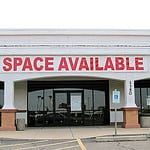Shared office space is the most cost-effective option for solo attorneys and small law firms.
For a number of reasons, solo attorneys and small law firms, particularly those in large urban areas like New York, Boston or DC, where rents can be very expensive, will share office space with other attorneys in lieu of getting their own leased office space directly from a commercial landlord.
Lawyers generally find shared office space in one of three ways:
Sublet Office Space.
Bigger law firms with their own commercial leases often sublet extra offices to solo lawyers and small law firms to offset their expenses. These firms will often advertise on online lists, like New York based Lookingforspace.com, in local legal publications, like the New York Law Journal, or with a local bar association.
A Lawyer “Co-op”.
Sometimes, several solo or small firm lawyers lease a commercial office space directly from the building’s landlord in their own name or sometimes through a company that they form for this purpose.
Executive Office Suites.
An executive office suite is essentially a professionally run lawyer Co-Op. Law Firm Suites is considered an executive office suite exclusively for attorneys. In most executive suites the clientele is not limited to attorneys. But by industry standards, the single biggest representative profession is attorneys, often forming as much as one-third of all clients in the center.
Why do lawyers choose shared office space?
For the solo or small firm attorney, there is significant economic value in sharing office space with other attorneys. Every law firm needs certain equipment or personnel to run efficiently. Such items can include a high speed copy/scanner, phone system or even a receptionist. However, much of that equipment or personnel can be leveraged across many attorneys as opposed to one firm. A shared office solution creates economies of scale and greater efficiencies than any one firm could create on its own.
What kind of facilities and services can you expect in a shared law office?
Shared office space comes in many variations, sizes and term length commitments. In large urban city centers, such as New York City, there is typically a suitable option for every potential shared office client and budget.
The options can range from something utilitarian – think four walls and a door with nothing else – to an opulent, professionally operated facility that provides unexpected amenities, such as daily continental breakfast, and everything in between.
Sublets and lawyer co-ops can be more on the utilitarian side (and thus cost less), while executive office suites tend to offer professional grade amenities, such as a full-time staffed receptionist to greet prospective clients, dedicated call answering services, law firm grade telecommunication services and shared conference room access.
What type of experience can lawyers expect in shared office space?
At its best, a shared law office space will have a community that works similar to that of a being in a larger law firm without having to tie your finances to anyone else. Colleagues often come to each other for;
A good office share community can yield substantial value to a solo attorney or small firm lawyer, often more than paying for the cost of the rental.
Yet this type of collegiality may not be found in all law office shares. Sometimes, the suite has a “stick to yourself” type of vibe, which you may be looking for.
Understanding the culture in a shared office space (and finding one that fits your needs best) would be something that every lawyer would want to know before signing a sublease or office license.



